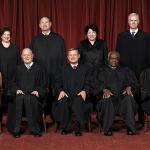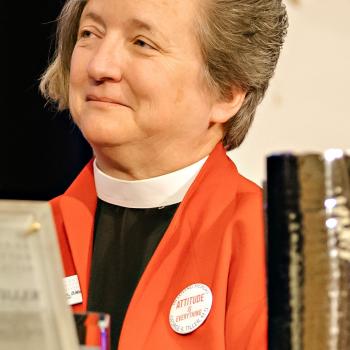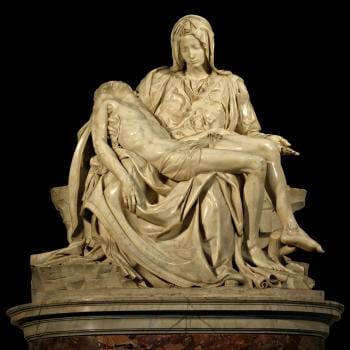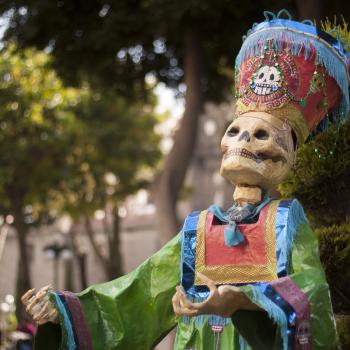Amy Coney Barrett is a Catholic. Not what we might call a Kennedy Catholic or a Pelosi Catholic or a Joe Biden Catholic who support gay marriage and abortion and who knows what else.
She’s a committed, conservative practicing Catholic. She’s got seven kids–five of her own and two adopted from Haiti. When she was being grilled about her nomination for circuit court judge Dianne Feinstein said, “the dogma lives loudly within you, and that is a concern.”
Should a judge’s faith be a concern? Maybe or maybe not. Barrett replied, “It is never appropriate for a judge to impose that judge’s personal convictions, whether they arise from faith or anywhere else, on the law.”
That’s a very legalese kind of response. The trick in the response is the definition of “personal convictions.” A person might believe that slavery was morally wrong in all circumstances, and that this is not a “personal conviction” it is simply, obviously true. To extend the argument one could also say that killing an unborn child in the womb is objectively a crime, and it is always so. Therefore to be opposed to abortion is not a “personal conviction” it is simply believing something which is as true as the sky is blue.
The thing that interests me in this discussion is that an awful lot of people in the country today do not believe in such a thing as objective truth or objective morals. Everything is a matter of personal opinion. The real question should therefore be, “What is a personal conviction and do you believe in such a thing as unalterable, objective truth which applies to all people in all places and in all situations?”
A faithful Catholic does believe in that kind of truth, and this essential philosophical question is one that perhaps Feinstein was digging at with her wise crack, “The dogma lives loudly in you.”
Therefore, Americans who are facing Monday’s decision with huge interest are (whether they know it or not) facing a very fundamental question about not only the Supreme Court, but the very nature of truth and the foundation for morality and the foundation for law.
From my own discussions with lawyers and judges over the years I know it is this sort of philosophical question that exercises them and challenges their decisions at a basic level. Is the human law based on an objective law greater than all of us revealed by the great lawgiver–the one who first set down the ten commandments or is the law a developing, ever changing, amorphous code which evolved with human society and is infinitely mutable?
This takes us back therefore to what we believe about God. Is there a God who is the source of all Truth and therefore all Justice or not?
Amy Coney Barrett’s religion does matter therefore. It matters in this far more important way than simply, “Does she want to overturn Roe v Wade?” It matters because when we think it through, Barrett must represent an approach to the law which is rooted in a belief in an objective law code. This does not mean that she must impose all the rules and beliefs of the Catholic faith on everyone. She is smarter than that, but she will also approach her job knowing that the greater law is not something we made up, but something that have been given.
Finally, if people are worried about Barrett having a religion and therefore a coherent world view, they should stop and find their common sense. Everyone has a belief system. Everyone has a world view. Everyone has a religion–if you like.
Even the person that says “I don’t believe anything” has a worldview. Its called nihilism.
And just as Barrett’s beliefs are bound to affect her behaviors, so everyone’s beliefs affect their behaviors.
The only difference is, Barrett knows what her beliefs are. They are clear and precise and formulated. They are therefore far more likely to be kept in check because they are religious beliefs.
She doesn’t frighten me at all. What does frighten me is the lawmaker or judge who thinks they have no belief. They are far more likely to be swayed by their ideology or belief system because it is vague and undetermined and far more likely to be made up of a mish mash of emotions, second hand philosophies and political ideology.
So better a belief system you know than a belief system you don’t.
Image Creative Commons












